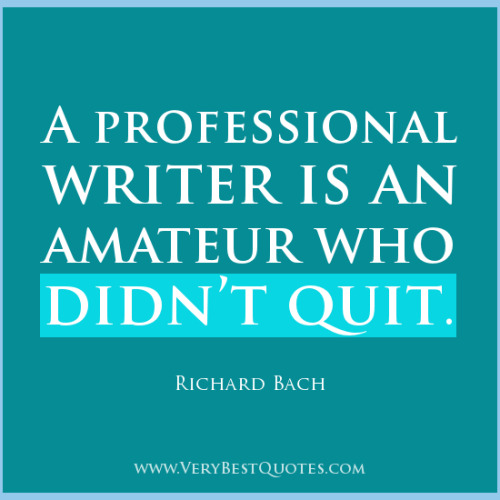Sinedra - Writing Through Time, Space,and All Things Magical




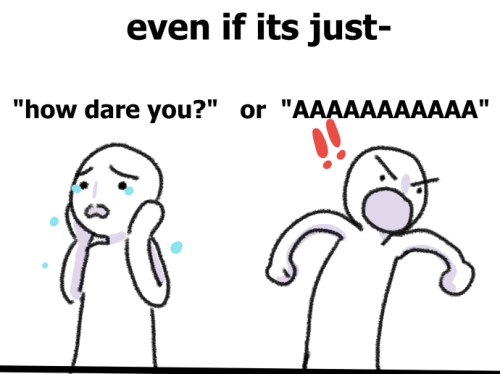

More Posts from Sinedra and Others
Writing Tip #8
Write every day. That’s right, every day. You may have heard this before, maybe you haven’t. It’s a lot easier to eliminate writer’s block and to get pages dished out in a day. If this seems daunting and you don’t believe you have the time, make time. In between work, or studying, or even before class (which is what I do), just start off with what you can get and then go from there.
Don’t worry about the quality of your writing, just write what you can. That’s what editing is for later. Keep at it until you are writing at least three paragraphs or more everyday. It should be easier to start when the time comes to just sit and start typing (or writing in a notebooks) for a whole hour or more.
WHAT TO DO AFTER FINISHING A FIRST DRAFT.
Revise a different draft.
Write a new piece.
Read a craft article. (LitReactor.com is pretty good!)
Read a short story or book.
WHAT YOU SHOULDN’T DO AFTER FINISHING A FIRST DRAFT.
Revise it.
WHY NOT?
You have to be as detached from a draft as you possibly can when you polish it. You have to be able to trim the fat from your baby and take out all those words, sentences and fragments that are stopping it from being a great story. I’m sure those words you used are beautiful and they sound amazing, but if they’re stalling the plot they have to go.
HOW DO I KNOW WHAT TO KEEP AND WHAT TO THROW AWAY?
Read! The best way to know what a perfectly paced story is like is to read one. There’s no black-and-white, two-plus-two way to answer this, but this is what works for me:
Avoid adverbs, those words that tend to end in -ly.
Keep descriptions to a minimum. People are interested in your story. If they want to see what a place or person is like they go to Google images. If they come to you it’s because they want to be entertained.
Change passive voice sentences to subject-verb-complement sentences. You will get the same idea across in less words.
FINAL TIP
Try not to make changes on your first pass! If your word processor has a comment function use that to write the changes you need to make. If you read and edit at the same time you’ll be doing two things at once and you’ll get tired much quicker.
FINAL FINAL TIP
Enjoy yourself! You’re an artist. Write and revise for yourself. Love it.
how to trick writers into giving you more fanfic to read

I don't want to earn my living; I want to live.
Oscar Wilde

idk if anyone will find this useful, but this is how i go about planning my stories. i mostly write fantasy, so that’s what this is most applicable to. but it could work with other genres too.
so there’s three major components to a story: the characters, the plot, and the world. creating them individually is the easy part, but they all connect and affect each other in different ways. (like you can’t have a character who loves peaches and eats them every day if they live a peasant in a region that doesn’t grow peaches, for example.)
so i created a cheat sheet to help connect all three components together.
1) the world creates the characters.
this is related to the peach example above. the characters should be a direct result of the environment they grew up in and the environment they currently live in.
2) the characters are limited by the world.
also related to the peaches. characters can’t do anything outside of what the rules of their surroundings and universe allow, such as eating peaches when they’re not available. this also applies for magic users. they can’t have unlimited magic, so keep in mind what you want out of both the characters and the world when creating magic systems.
3) the characters carry the plot.
we’ve all heard it before: “bad characters can’t carry a good plot. good characters can carry a bad plot.” but we all like a good plot anyway. try to make sure you’re not giving your characters too heavy or too light of a plot to carry.
4) the plot pushes the characters.
if nothing in the plot happens, your characters will remain static forever. if you struggle with plots, try starting with what character development you want to happen, then go from there.
5) the plot depends on the world.
you can’t overthrow the evil government if there isn’t one. think of what your world needs most and what your plot is centered around, and fit those two together.
6) the world is changed by the plot.
even if your plot is centered around something most of your world would call “insignificant”, the world will still experience some change from the plot. either the evil government will be gone, or maybe that one teacher is now way more careful about keeping an eye on the test key. either way, the world will be different from now on.
final note: usually people will be able to write one or two of the components with ease, but don’t know where to go from there. i personally can’t write plots, but thinking this way has really helped me actually make a story out of the world and characters because i looked at what i needed from what i had. i really hope this can help you too! happy writing!
tl;dr this is a cheat sheet to help anyone who struggles with writing one or two of what i consider the three major components to a story.

You own everything that happened to you. Tell your stories. If people wanted you to write warmly about them, they should have behaved better.
Anne Lamott
The Motivation Guide
One of the biggest problems writers face is the lack of motivation to continue or finish their projects. For me personally, it’s the number one reason why I give up writing something. Losing interest is a problem that can be fixed, however.
I came up with this guide to refer to when you’re wondering how to motivate yourself. Remember, there are reasons why you might want to skip out on a project, but you should try getting yourself excited about your work first. Here are a few things to do when you’re lacking motivation:
Make plans for the future – try to figure out what the next step in your story is going to be.
Overanalyze your characters – it’s better to know too much about your character than not enough.
Think on your feet – don’t be afraid to go in an unexpected direction.
Invent new ideas – if you’re stuck, look at something from a new angle
Visualize your characters – try casting your novel in your head
Anticipate what will come next – when you’re done for the day, figure out what you’ll tackle next
Try something new – introduce a new character or explore a different subplot
Invite other writers in – get together with writer friends and brainstorm, in person or online
Organize your outline – don’t forget to revisit your outline from time to time and reorganize
Never forget your goals – write them down and put them somewhere you can see every day
-Kris Noel
Writing Tip #7
Get to really know your character. From novel to OC in a fanfic, know every little thing about them. What is their favorite color? Most hated food? Deepest fear? Guilty pleasure? Are they afraid of heights or spiders? If you don't know them intimately, you can't write them well. It's like trying to tell the life story of a stranger you pass on the streets. You can't explain why they punched the wall, but they did. You can't write a character that people will get attached to them if you aren't attached yourself. A fun way to figure out their nuances is take those silly personality quizzes online. They actually make you think really hard on the little stuff and it helps big time. Remember that the world around them will also affect things. If a war is going on, the most likely won't be eating like kings. Do they resent it or is it all they've know? Sometimes it's the little things that really open up a character. It can be as stressful as trying to pull all the skeletons from your best friend's closet, but it's worth it in the end. (I.E. had a character afraid of the color orange and they were stuck in a pumpkin patch with their friends. Panic ensued and fighting happened, all because it was a feared color.) Any detail can seem too little to include, yet they can be the driving force behind a scene. Oh, and keep notes on their personality and preferences. It's easy to forget it all when you set down your writing.
I agree with the above. My writing professors always said 'there are rules, break them as long as you understand how and why'. The rules are important, but you're allowed to play with them. Bend them. Writing is an art form, we push the boundaries and limits set to us and that's what makes it interesting to read. Makes each author sound unique. Just be sure it's all moving the plot in some way or revealing character. It has to have a purpose.
Otherwise, write what you want to write. J. K. Rowling was denied again and again till someone saw the magic - pun fully intended - in her work. Stephen King was told his stories were too depressing, that no one would want to buy science fiction with negative utopias. That his novels would never sell. In the end they got picked up by agencies. Keep your heads up, there is hope.

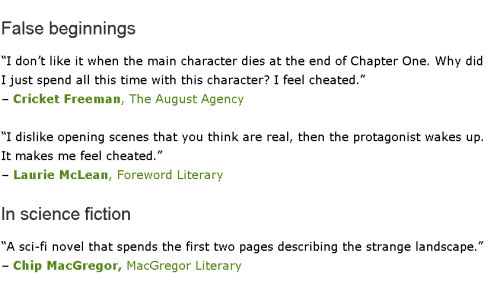
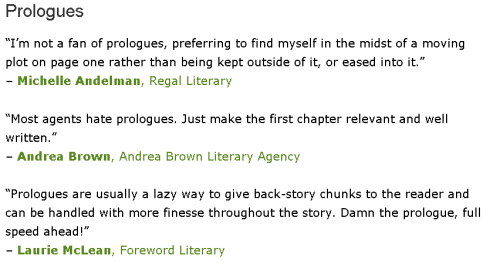

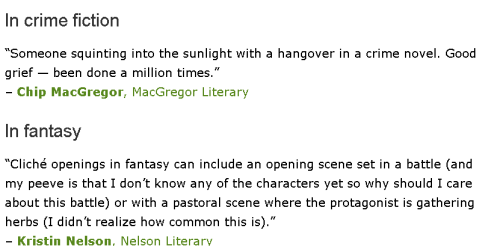
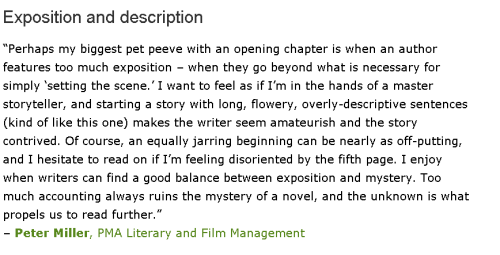
-
 superkitten333 reblogged this · 1 week ago
superkitten333 reblogged this · 1 week ago -
 superkitten333 liked this · 1 week ago
superkitten333 liked this · 1 week ago -
 fanaticalfanfantasy reblogged this · 1 week ago
fanaticalfanfantasy reblogged this · 1 week ago -
 fanaticalfanfantasy liked this · 1 week ago
fanaticalfanfantasy liked this · 1 week ago -
 triforceofsarcasm reblogged this · 1 week ago
triforceofsarcasm reblogged this · 1 week ago -
 spilt-ink-and-sleepless-nights reblogged this · 1 week ago
spilt-ink-and-sleepless-nights reblogged this · 1 week ago -
 spilt-ink-and-sleepless-nights liked this · 1 week ago
spilt-ink-and-sleepless-nights liked this · 1 week ago -
 iliketopgun reblogged this · 1 week ago
iliketopgun reblogged this · 1 week ago -
 jenuinelycurious liked this · 1 week ago
jenuinelycurious liked this · 1 week ago -
 lucianmarauder liked this · 1 week ago
lucianmarauder liked this · 1 week ago -
 maeaea liked this · 1 week ago
maeaea liked this · 1 week ago -
 yefaerie reblogged this · 1 week ago
yefaerie reblogged this · 1 week ago -
 yefaerie liked this · 1 week ago
yefaerie liked this · 1 week ago -
 bluesableeye reblogged this · 1 week ago
bluesableeye reblogged this · 1 week ago -
 callofwinter liked this · 1 week ago
callofwinter liked this · 1 week ago -
 undertalefan-bogi liked this · 1 week ago
undertalefan-bogi liked this · 1 week ago -
 supersleepyslowpoke reblogged this · 1 week ago
supersleepyslowpoke reblogged this · 1 week ago -
 twitchynibbles liked this · 1 week ago
twitchynibbles liked this · 1 week ago -
 archonsoflove reblogged this · 2 weeks ago
archonsoflove reblogged this · 2 weeks ago -
 ash-nonbayanary reblogged this · 2 weeks ago
ash-nonbayanary reblogged this · 2 weeks ago -
 a-pagancongregation reblogged this · 2 weeks ago
a-pagancongregation reblogged this · 2 weeks ago -
 rosy-posy-posts liked this · 2 weeks ago
rosy-posy-posts liked this · 2 weeks ago -
 minecraftfanatic reblogged this · 2 weeks ago
minecraftfanatic reblogged this · 2 weeks ago -
 burntgrilldcheese liked this · 2 weeks ago
burntgrilldcheese liked this · 2 weeks ago -
 beefullsponge liked this · 2 weeks ago
beefullsponge liked this · 2 weeks ago -
 lanzacohetes3000 liked this · 2 weeks ago
lanzacohetes3000 liked this · 2 weeks ago -
 maxdark158 reblogged this · 2 weeks ago
maxdark158 reblogged this · 2 weeks ago -
 imcloudymoon liked this · 2 weeks ago
imcloudymoon liked this · 2 weeks ago -
 peachyyokai reblogged this · 2 weeks ago
peachyyokai reblogged this · 2 weeks ago -
 peachyyokai liked this · 2 weeks ago
peachyyokai liked this · 2 weeks ago -
 ash3rrrr liked this · 2 weeks ago
ash3rrrr liked this · 2 weeks ago -
 lin-cece liked this · 2 weeks ago
lin-cece liked this · 2 weeks ago -
 e-turn reblogged this · 2 weeks ago
e-turn reblogged this · 2 weeks ago -
 e-turn liked this · 2 weeks ago
e-turn liked this · 2 weeks ago -
 g-man-17 reblogged this · 2 weeks ago
g-man-17 reblogged this · 2 weeks ago -
 g-man-17 liked this · 2 weeks ago
g-man-17 liked this · 2 weeks ago -
 itsthedemontamer367 reblogged this · 2 weeks ago
itsthedemontamer367 reblogged this · 2 weeks ago -
 oogiboogity liked this · 2 weeks ago
oogiboogity liked this · 2 weeks ago -
 adriftinareverie reblogged this · 2 weeks ago
adriftinareverie reblogged this · 2 weeks ago -
 adriftinareverie liked this · 2 weeks ago
adriftinareverie liked this · 2 weeks ago -
 tired-cashier liked this · 2 weeks ago
tired-cashier liked this · 2 weeks ago -
 doodlebugreturns reblogged this · 2 weeks ago
doodlebugreturns reblogged this · 2 weeks ago -
 doodlebugreturns liked this · 2 weeks ago
doodlebugreturns liked this · 2 weeks ago -
 uwillbegayinfiveminutes liked this · 2 weeks ago
uwillbegayinfiveminutes liked this · 2 weeks ago -
 mizumy liked this · 2 weeks ago
mizumy liked this · 2 weeks ago -
 idiotthatdrawsakaartist liked this · 2 weeks ago
idiotthatdrawsakaartist liked this · 2 weeks ago -
 forgetfulreverie reblogged this · 2 weeks ago
forgetfulreverie reblogged this · 2 weeks ago -
 iamgglitch liked this · 2 weeks ago
iamgglitch liked this · 2 weeks ago -
 larvaland liked this · 2 weeks ago
larvaland liked this · 2 weeks ago

A simple blog dealing with writing, books, and authors. Writing blog is Sinedras-Snippets. Icon and header by miel1411
164 posts
